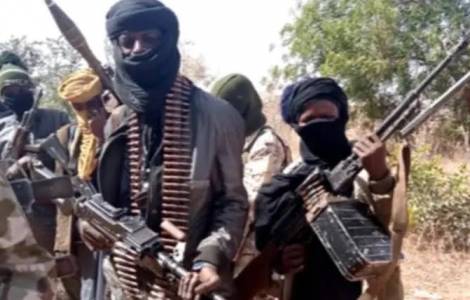
by Luca Mainoldi
Abuja (Agenzia Fides) - "In these trying times, this Dicastery offers its deepest and heartfelt solidarity to the Nigerian people, who are grappling with a crisis that is expanding in scope and intensifying in proportion". Thus Cardinal Luis Antonio Tagle, Pro-Prefect for the Section for the First Evangelization and the new Particular Churches of the Dicastery for Evangelization, and the Secretary of the same Dicastery, the Nigerian Archbishop Fortunatus Nwachukwu, expressed the solidarity of the Dicastery with the Church and the Nigerian people, after having "learned from various news sources about the frequency of kidnappings in Nigeria, a situation that has notably escalated in recent times".
"Among those tragically caught in the crossfire of these reprehensible acts are members of the clergy, religious and lay faithful", reads the message sent to Lucius Iwejuru Ugorji, Archbishop of Owerri and President of the Bishops' Conference of Nigeria. "Nothing can justify the evil of kidnapping", the message emphasizes, because "the physical violence and accompanying mental torture that go with kidnapping undermine the pillars of civil and social harmony, as they traumatise the individuals involved, their families and the society in general".
"Our thoughts and prayers are with the Bishops, clergy and religious, seminarians, the devout members of the Church, all Christians and people of good will across the nation", the message continued, in which "a deep sense of empathy for the innocent victims of these kidnappings and their families" is expressed.
"In the same token, we call on the government of Nigeria to act swiftly in addressing this menace and halting the looming crisis". In the message to the Nigerian Church it is hoped that "in addition to putting measures on ground to secure lives and properties, the State, with the support of the Church, should seek ways of repositioning the nation on the path of economic growth, political stability, and religious cohesion".
"Our hope is that this Lent will prove spiritually fruitful for each believer and every ecclesial community in Nigeria. May the Lord bless you and may Mary Queen and Patroness of Nigeria keep you", it concludes.
For years, Nigeria has been grappling with the scourge of kidnapping, which target not only priests and religious, but also foreigners, businessmen, politicians, government officials, diplomats, traditional rulers, as well as ordinary citizens, including students and school children, who are frequent victims of mass kidnappings. It is not always easy to distinguish whether the kidnappings are carried out by terrorist groups or by criminal gangs only seeking financial gain. Regardless of whether they are committed by terrorists or bandits, several forms of kidnapping can be distinguished: planned kidnappings of specific people identified in advance; indiscriminate kidnappings, particularly on the streets, where victims are selected at random; Mass kidnappings (which typically involve planning raids on villages, places of worship including churches and mosques, schools, trains and train stations). In the case of kidnappings of precisely selected victims, kidnappings along the usual route of the victim to be kidnapped as well as night raids on the apartment and honey traps intended to lure the victim to the place of kidnapping were noted. A total of 3,964 people have been kidnapped in Nigeria since May 2023 and the start of President Bola Ahmed Tinubu's term in office, according to risk management consulting firm SBM Intelligence. The kidnappings do not spare the federal capital Abuja, where Mansoor Al-Kadriyar was kidnapped along with six of his daughters on January 5th. The man was later released after paying 50 million naira ($35,336) for the release of his daughters. A daughter was killed due to the fact that the requested sum was not paid. The others were released after the ransom was paid. On January 11, gunmen in military uniform carried out a mass kidnapping in the federal capital, abducting 11 people. One of them, a 13-year-old girl, was killed because the ransom was not paid. On January 18, the military compound in Kurudu was also attacked and two people were kidnapped. (Agenzia Fides, 16/2/2024)